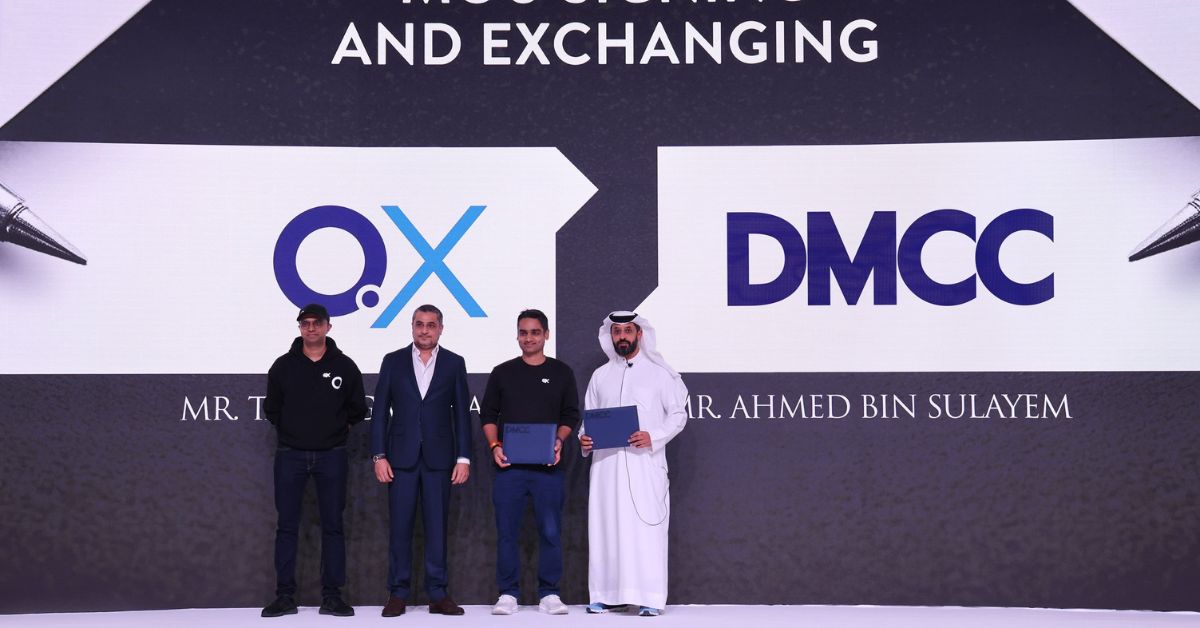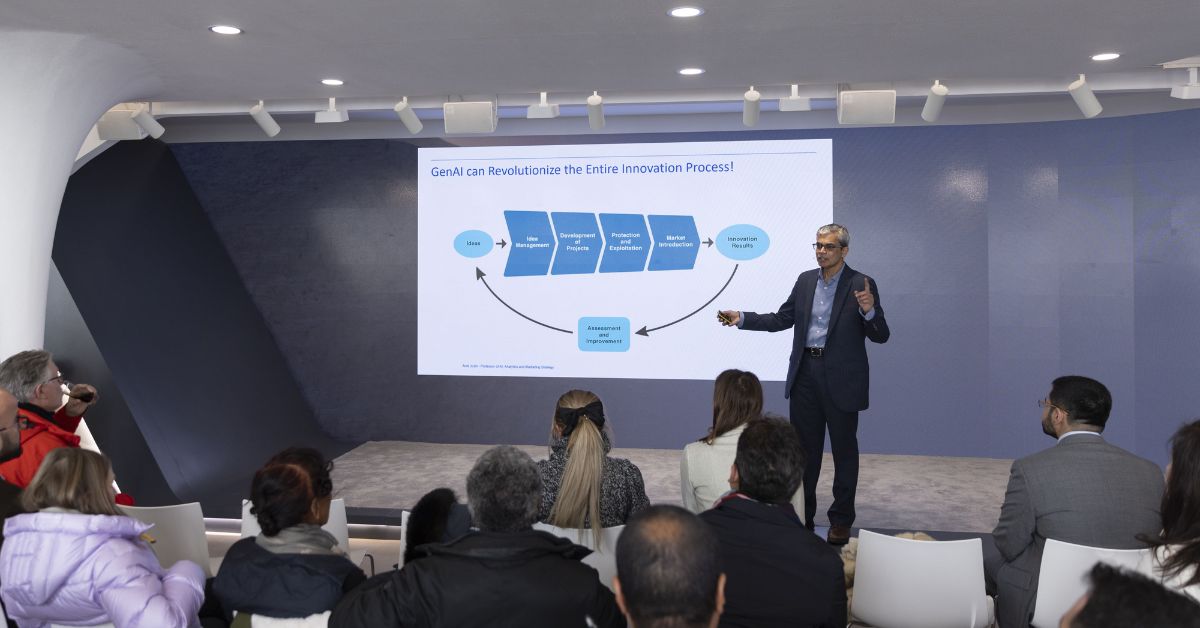DUBAI — Artificial intelligence (AI) is revolutionizing workplaces worldwide, and the UAE is leading the charge. According to Salesforce’s latest research, “The Promises and Pitfalls of Generative AI at Work,” 40 percent of workers in the UAE are already implementing or experimenting with generative AI, compared to just 28 percent globally, positioning the UAE at the forefront of this technological wave.
Generative AI, a branch of AI focused on creating content such as images, text, or music, is significantly enhancing productivity and engagement. In the UAE, an impressive 79 percent of workers using generative AI report increased productivity, and 74 percent experience heightened engagement at work.
However, as AI adoption grows, challenges arise, particularly in clarity around business policies and training on generative AI in the UAE and worldwide.
A substantial 52 percent of UAE workers have not received training on generative AI, highlighting a gap in employer-led education initiatives. The global scenario reveals a more pronounced issue, with nearly 70 percent of workers lacking proper training on the safe and ethical use of generative AI.
At A Glance * UAE Leads in Generative AI Adoption: 40% of UAE workers are using or experimenting with generative AI, surpassing the global average of 28%. * Boost in Productivity and Engagement: 79% of UAE workers report increased productivity with generative AI, and 74% see heightened work engagement. * Training and Policy Gaps Identified: Over half of UAE workers lack generative AI training, and 64% report a need for clearer technology use guidelines. * Metaverse Skepticism Among UAE Tech Leaders: Only 29% believe the metaverse can achieve short-term company goals, preferring AI and ML for immediate impact. * AI as a Critical Tool for Short-Term Goals: 53% of UAE respondents prioritize AI and ML for achieving short-term objectives within three years. * AI Trends Reshaping UAE Workspaces: Generative AI is revolutionizing content creation, while AI automation and personalized customer experiences enhance efficiency and engagement. * Ethical AI Governance Gains Importance: With AI adoption rising, there's a focus on ethical considerations and regulatory frameworks to ensure responsible AI use.
Furthermore, there’s a noted ambiguity in workplace policies regarding generative AI. In the UAE, 64 percent of workers indicate their companies lack clearly defined guidelines for technology use.
Thierry Nicault, Area Vice President and General Manager at Salesforce Middle East, stresses the importance of investing in safe, ethical, and trusted generative AI tools. He advocates for organizations to stay ahead by providing adequate training and establishing clear policies, which will enhance career growth, trust, and the ethical use of AI. This approach not only boosts productivity and employee satisfaction but also ensures that AI investments achieve their full potential.
In contrast, a report by KPMG reveals that only 29 percent of UAE tech leaders see the metaverse as beneficial for achieving short-term company goals. The survey suggests that artificial intelligence (AI) and machine learning (ML) are viewed as more critical for UAE technology companies to meet their short-term objectives.
According to KPMG’s report, 53 percent of respondents in the UAE identified artificial intelligence and machine learning, including generative AI, as critical to achieving their short-term goals within the next three years. Beyond artificial intelligence and machine learning, some survey respondents believe edge computing (43 percent), including the Internet of Things (IoT), and quantum computing (41 percent) will also support their company’s short-term objectives.
Globally, technology leaders share similar views, with 57 percent favoring AI and machine learning technology the most. However, unlike their UAE counterparts, global decision-makers see robotics and automation (42 percent) as key drivers of their ambitions, following artificial intelligence, machine learning, and edge computing, rather than quantum computing.
AI Trends in the UAE’s Workforce
As organizations across different sectors aim to boost efficiency, productivity, and innovation, the adoption of AI technologies is reshaping the UAE’s workforce landscape. The rise of Generative AI, which enables machines to autonomously produce content, is gaining momentum in UAE workplaces. This technology is revolutionizing creative processes and content creation, from text and images to music and videos, especially in marketing, media, and design industries, where AI-enhanced tools boost human creativity and streamline workflows.
Moreover, AI-powered automation is transforming traditional business operations in the UAE. Organizations are employing AI-driven solutions to automate repetitive tasks, enhance workflows, and optimize resource distribution. From robotic process automation (RPA) to AI-powered chatbots and virtual assistants, these automation technologies improve efficiency and allow employees to dedicate more time to tasks that require human creativity.

Additionally, AI-driven personalization is changing the game for customer experiences in the UAE. By analyzing extensive customer data, AI algorithms can offer personalized recommendations, customized content, and targeted marketing campaigns. From e-commerce to hospitality and retail, businesses are utilizing AI to create hyper-personalized experiences that increase customer engagement, loyalty, and satisfaction.
Moreover, Enhanced Data Analytics is enabling organizations in the UAE to extract actionable insights from large and complex datasets. Machine learning algorithms are adept at analyzing data patterns, detecting anomalies, and predicting future trends, thus empowering businesses to make data-driven decisions with precision and agility. From predictive maintenance in manufacturing to risk analysis in finance, AI-driven analytics are revolutionizing industry decision-making processes.
Finally, as AI adoption accelerates in the UAE, there is a growing focus on ethical AI governance and regulation. Organizations are prioritizing ethical considerations, fairness, transparency, and accountability in AI deployment to mitigate risks and ensure the responsible use of AI technologies. From regulatory frameworks to internal policies and guidelines, ethical AI governance is becoming an integral part of AI strategy and implementation in the UAE workspace.
As businesses navigate the complexities of AI integration, the demand for strategic investments in education, policy development, and ethical frameworks becomes increasingly critical. With the right approach, generative AI promises to transform workplaces, drive innovation, and enhance the human experience in the digital age.







